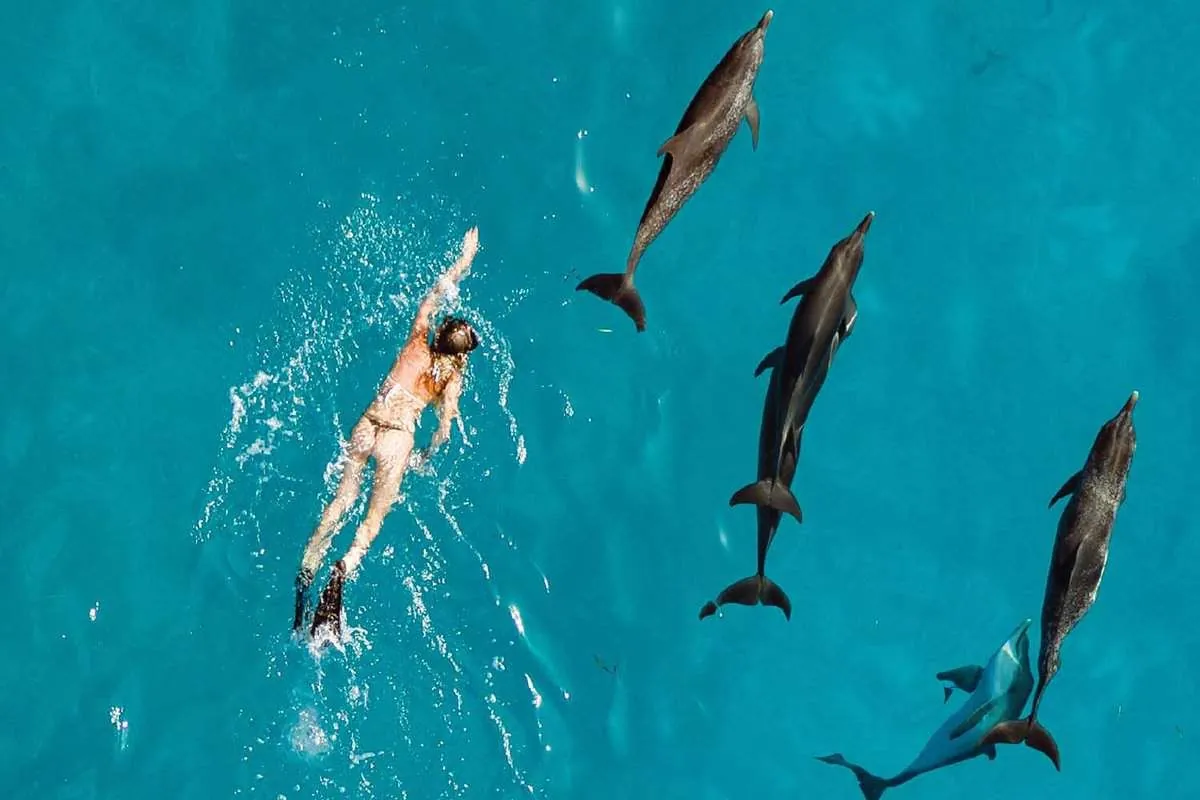In a series of unusual incidents near Mihama, Japan, a solitary male dolphin is believed to be responsible for 18 attacks on swimmers since July 2024. The attacks have resulted in injuries requiring medical attention, with some victims needing numerous stitches.
Local authorities have responded by posting warning signs featuring an image of a dolphin with sharp teeth, cautioning beachgoers about the potential danger. The signs advise swimmers to exit the water immediately if dolphins are spotted nearby.
While dolphin attacks on humans are rare, experts explain that these intelligent marine mammals can become aggressive if they feel threatened or harassed. Dr. Putu Mustika, a marine researcher at James Cook University in Australia, suggests that the dolphin's behavior could be attributed to sexual frustration or loneliness.
"Dolphins, when they are mating, can be very wild."
Dr. Mustika explains that dolphins' mating behaviors can inadvertently harm humans due to their immense strength. The act of lunging at a person could be interpreted as a sexual behavior, indicating the dolphin's state of arousal and isolation.
This incident is not without precedent. In 1994, a similar situation occurred in Sao Sebastiao, Brazil, where a solitary dolphin named Tião, initially friendly, became stressed by excessive human attention and reportedly caused a fatality.
Giovanni Bearzi, a zoologist and president of the Dolphin Biology Conservation in Italy, emphasizes that humans often overlook the power of these animals, viewing them as invariably friendly creatures. He warns that unaware or overly friendly human behavior can trigger aggression in dolphins.
Interestingly, dolphins possess remarkable cognitive abilities and complex social structures. They can recognize themselves in mirrors, indicating self-awareness, and have been observed using tools such as sponges to protect their snouts while foraging. These intelligent creatures communicate using a variety of whistles and clicks, with some species capable of producing up to 1,000 clicking sounds per second for echolocation.
To address the ongoing issue in Mihama, authorities have implemented several preventive measures. These include installing underwater acoustic devices designed to deter dolphins and limiting swimming hours on certain beaches. The effectiveness of these measures remains to be seen as officials continue to monitor the situation closely.
As we navigate this unusual circumstance, it's crucial to remember that while dolphins are fascinating and often friendly creatures, they are wild animals deserving of respect and space. Understanding their behavior and maintaining a safe distance is essential for both human safety and dolphin well-being.
